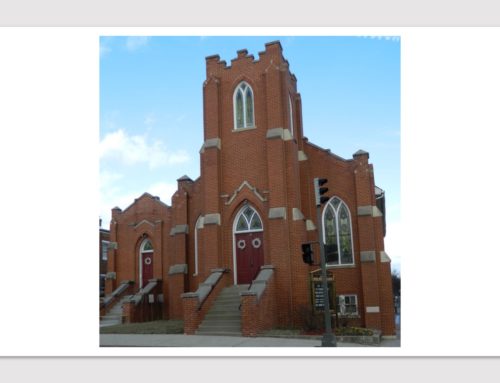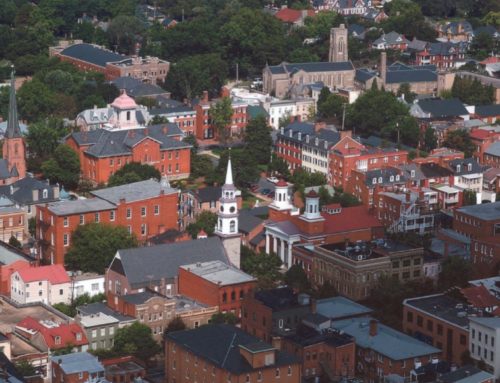Excerpt from the Frederick News-Post:
Further requirements won’t be added to protect the agricultural history that the Frederick Fairgrounds represents.
The Frederick Board of Aldermen on Thursday voted to deny a proposal to place a historic preservation overlay on a portion of the fairgrounds property. The 4-0 vote was met with a standing ovation from the packed crowd of local residents and representatives from the agricultural community, including the Frederick County Agricultural Society, which owns and operates the fairgrounds.
An overlay is a layer of regulations on top of zoning requirements already in place. If approved, the designation would have given the city’s Historic Preservation Commission authority to review and approve major exterior changes to the properties.
The aldermen’s decision on Thursday came after more than two hours of impassioned testimony.
Nearly all of the roughly 20 people who spoke on Thursday said they opposed the proposed designation. They offered a multitude of reasons why the designation would hurt the property owners, the property and its operations, including The Great Frederick Fair.
Kate Kuranda, an architectural historian and senior vice president at the local architectural firm R. Christopher Goodwin & Associates Inc., was one of several speakers on Thursday who reiterated previously voiced consequences in terms of a decrease in property value.
“Consider the powerful, unintended consequences,” she urged the aldermen. “Preservation is a powerful planning tool, but it’s the wrong one for the fairgrounds.”
Members of the agricultural society have maintained that they have no plans to sell or redevelop the fairgrounds for another use. An overlay would preclude that possibility on a key parcel in east Frederick, real estate and development representatives have said.
Agricultural society members also contended that the time for additional review required under a designation, as well as possible cost increases to use historic materials, would create such a burden on fairgrounds operations, The Great Frederick Fair would shut down.
Others on Thursday shared nostalgic, emotional memories of visits to The Great Frederick Fair as children, highlighting its educational and community value.
“It’s the greatest outdoor classroom in the county, in the state, maybe even in the nation,” said Robert Ramsburg, president of the Frederick County Farm Bureau.
The city Historic Preservation Commission initiated the application for designation.
The commission and other supporters have framed the overlay as a way to protect the rich agricultural history the 135-year-old site provides and its unique buildings, as noted in a report by Lisa Mroszczyk Murphy, a city historic preservation planner.
But the idea of the fairgrounds as living history, rather than a set of historic buildings, swayed the aldermen to vote against the overlay. Several highlighted this specific argument to explain why they rejected the proposal.
“Putting a boundary around some structures is like trying to grab smoke,” said Alderwoman Kelly Russell.
Russell, who also sits on the city Planning Commission, had voted for the designation when the Planning Commission made its recommendation.
Alderwoman Donna Kuzemchak also said she did not think the overlay was, in this case, in the city’s best interest.
Kuzemchak added that she still supported preservation as a powerful economic tool for the city, in contrast with aldermen Josh Bokee and Phil Dacey, who questioned the merits of a historic designation process initiated by someone who doesn’t own the property.
Alderman Michael O’Connor recused himself from the vote and hearing because he is a lifetime member of the Agricultural Society.



